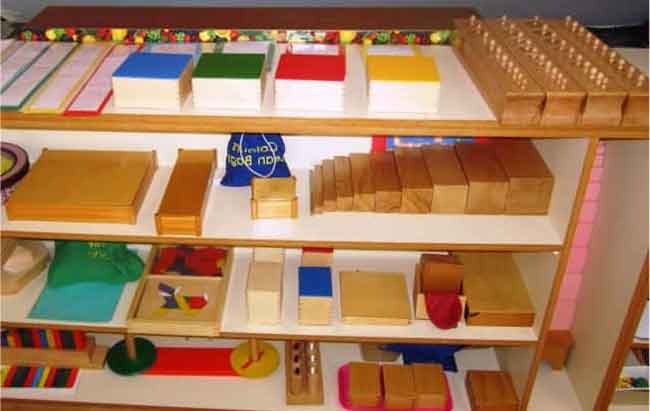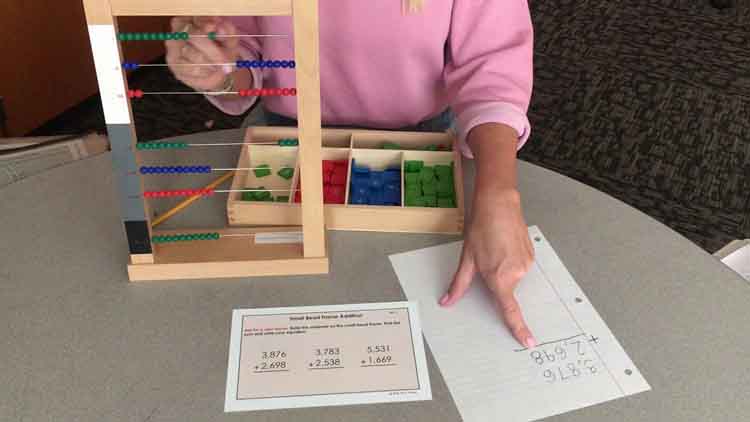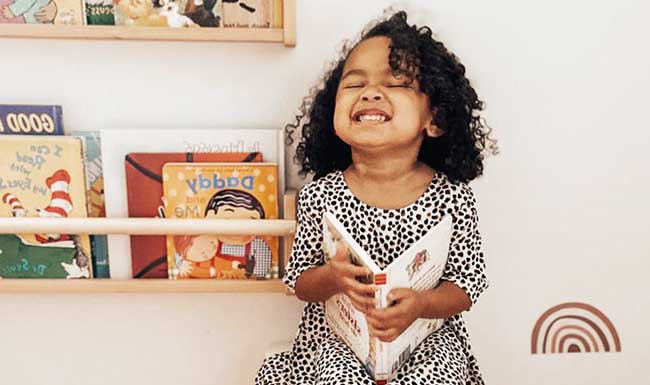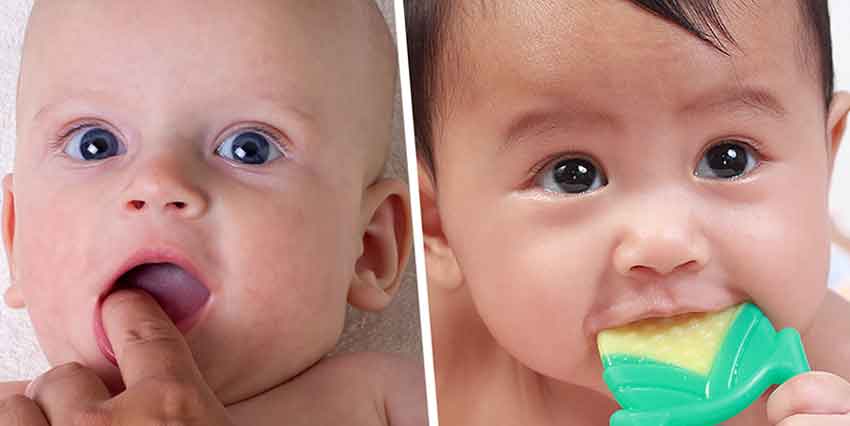Montessori education is renowned for its unique approach to learning, emphasizing hands-on experiences and child-centered exploration. Central to this philosophy is the use of sensory materials, which play a crucial role in a child’s development. These materials are not merely tools for play; they are integral to nurturing various skills, fostering cognitive growth, and supporting emotional well-being. This article delves into the importance of Montessori sensory materials in child development, highlighting their benefits and impact.
Understanding Sensory Materials in Montessori Education
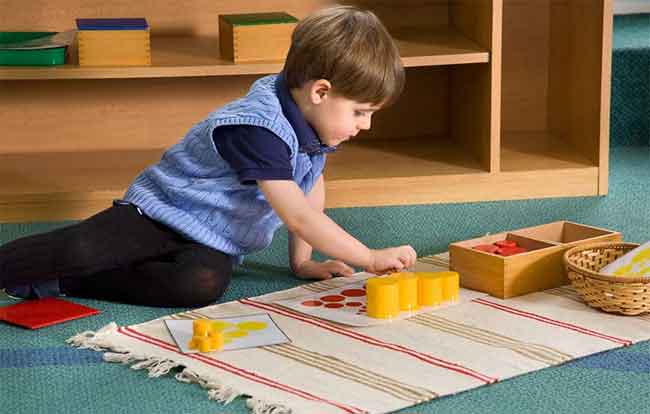
Montessori sensory materials are specially designed tools that engage a child’s senses—sight, sound, touch, taste, and smell. They encourage exploration, experimentation, and discovery, helping children learn about the world around them. These materials are typically made from natural, tactile substances, providing a rich sensory experience. Some common examples include:
- Sandpaper Letters: For developing tactile awareness and introducing letters.
- Color Tablets: To teach color recognition and differentiation.
- Sound Boxes: For auditory discrimination through matching sounds.
- Grading Materials: Such as different-sized blocks or cylinders to teach size, volume, and order.
Each of these materials is designed to isolate a specific sensory experience, allowing children to focus on one aspect of learning at a time.
Cognitive Development
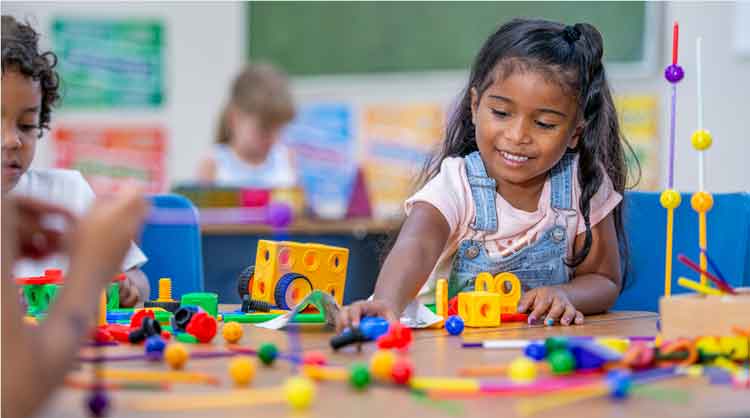
One of the primary benefits of Montessori sensory materials is their impact on cognitive development. Through sensory exploration, children engage in active learning, which enhances their ability to process information and develop critical thinking skills. Here’s how sensory materials contribute to cognitive growth:
- Enhanced Observation Skills: Using sensory materials encourages children to observe closely and notice details. For instance, when using color tablets, children learn to differentiate shades, fostering their ability to observe subtleties in their environment.
- Language Development: Sensory materials often promote vocabulary expansion. As children engage with these tools, they learn new words to describe their experiences, enhancing their language skills. For example, while working with sound boxes, children can discuss different sounds, fostering auditory vocabulary.
- Problem-Solving Abilities: Engaging with sensory materials requires children to think critically and solve problems. Whether figuring out how to balance different-sized blocks or matching sounds, they learn to approach challenges with creativity and resilience.
Physical Development
Montessori sensory materials also support physical development, particularly fine motor skills. Many activities involve manipulating objects, which enhances dexterity and coordination. Here are a few ways sensory materials aid physical growth:
- Hand-Eye Coordination: Activities like pouring, scooping, or threading beads require children to coordinate their movements, improving hand-eye coordination.
- Tactile Sensitivity: Sensory materials often have varied textures, helping children develop tactile sensitivity. For example, using sandpaper letters not only introduces letters but also allows children to feel the texture, reinforcing their learning through touch.
- Strengthening Muscles: Many sensory activities involve grasping, pinching, or squeezing, which help strengthen the muscles in a child’s hands and fingers. This is vital for later skills like writing and drawing.
Emotional and Social Development

Beyond cognitive and physical growth, Montessori sensory materials play a significant role in emotional and social development. These materials foster independence, self-regulation, and social interaction. Here’s how:
- Independence and Confidence: By allowing children to choose and manipulate materials freely, sensory activities promote autonomy. Children learn to make decisions, take risks, and develop a sense of ownership over their learning. This independence fosters confidence and self-esteem.
- Emotional Regulation: Engaging with sensory materials can be calming and therapeutic. For example, pouring activities can provide a soothing effect, helping children learn to self-regulate their emotions. The repetitive nature of some tasks allows for mindfulness and focus.
- Collaboration and Communication: Many sensory activities can be done in pairs or groups, encouraging children to work together. They learn to share materials, communicate their thoughts, and negotiate roles, developing essential social skills in the process.
Encouraging Creativity and Imagination
Montessori sensory materials also encourage creativity and imaginative play. Unlike traditional educational tools that often dictate a single outcome, sensory materials invite exploration and experimentation. Children can use them in various ways, fostering creative thinking. For instance:
- Open-Ended Play: Materials like clay or colored blocks can be manipulated in countless ways, allowing children to express their creativity without limitations.
- Storytelling and Role Play: Sensory materials can be integrated into storytelling, enabling children to create narratives and act out scenarios, further enriching their imaginative capacities.
Montessori sensory materials are far more than mere educational tools; they are vital components of a child’s holistic development. By engaging with these materials, children enhance their cognitive, physical, emotional, and social skills. The hands-on experiences provided by sensory materials foster a deep understanding of the world, encouraging children to explore, inquire, and learn at their own pace.
As Montessori education continues to grow in popularity, recognizing the significance of sensory materials will be essential for educators and parents alike. By prioritizing sensory-rich environments, we can nurture well-rounded, confident, and curious learners ready to thrive in an ever-changing world. Through the thoughtful integration of sensory materials, we are not just teaching children; we are preparing them for a lifelong journey of discovery and growth.
Content Prepared by: Pratheek
Contact no : +91 98468 08283
